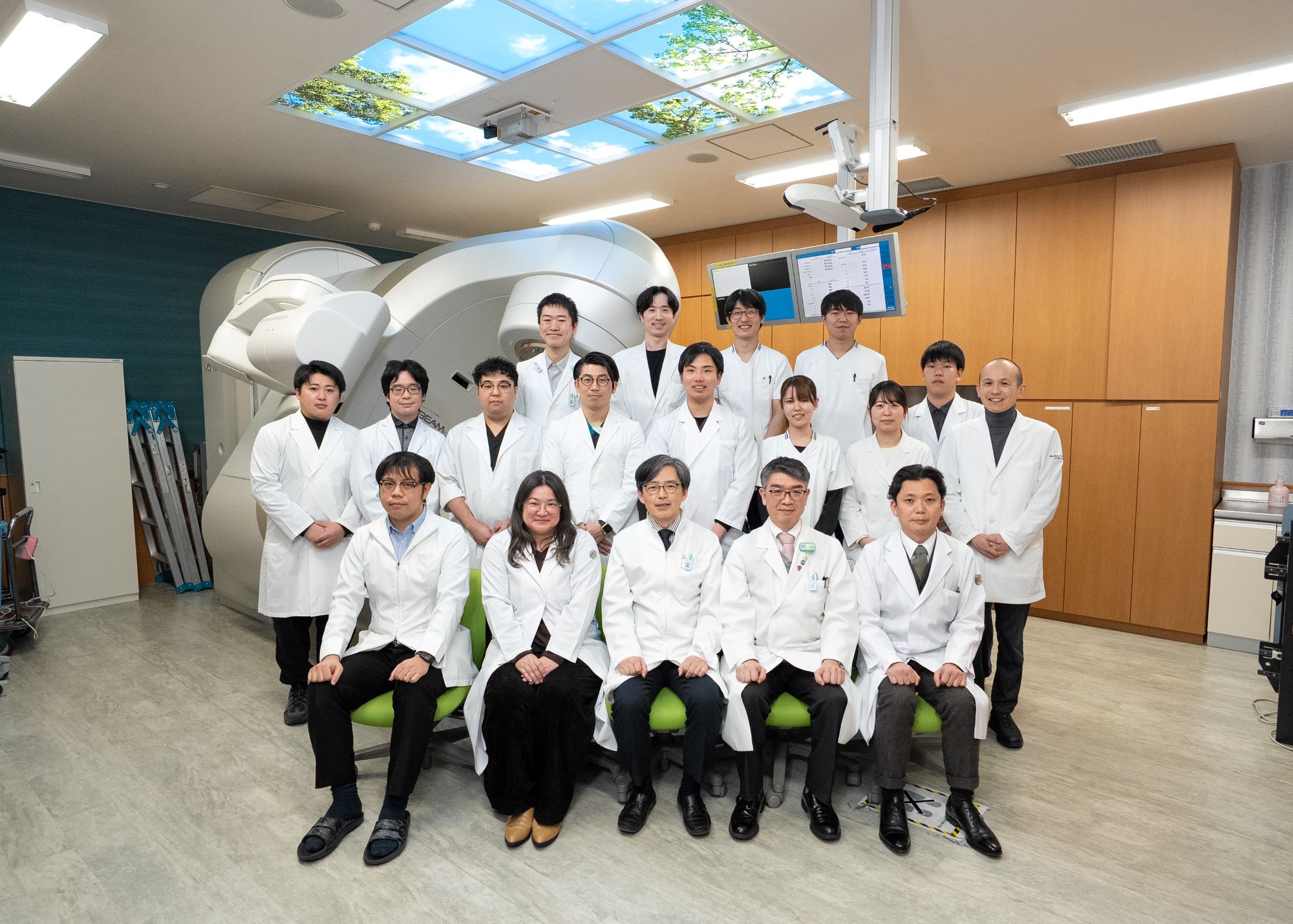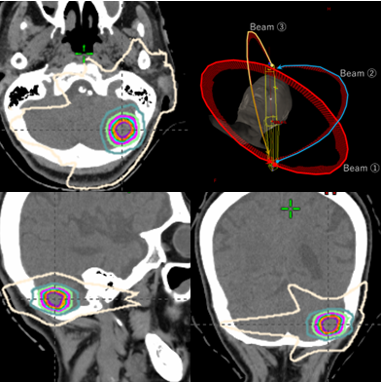【Research Keywords】
High precision radiotherapy, Volumetric Modulated Arc Therapy (VMAT), Geriatric assessment, Artificial Intelligence (AI), Radiomics, Oligometastasis
【Recent highlights】
1. Introduction of HyperArc
We have implemented HyperArc, a novel irradiation technique in intensity-modulated radiotherapy (IMRT). This technology enables VMAT using a linear accelerator from multiple angles, maximizing radiation dose concentration to the tumor while minimizing exposure to surrounding normal organs.
2. Advancement of Image-Guided Brachytherapy (IGBT) and Hybrid RALS for Gynecologic Malignancies
For intracavitary brachytherapy in gynecologic malignancies, we have introduced image-guided brachytherapy (IGBT), which allows for three-dimensional treatment planning based on CT imaging, thereby improving treatment outcomes and reducing adverse effects. Additionally, for irregularly shaped tumors that are difficult to treat with conventional RALS, we have adopted a novel technique called Hybrid RALS, which combines intracavitary and interstitial brachytherapy. In April 2025, we renovated our RALS room to create a more comfortable treatment environment. We also introduced a new applicator compatible with Hybrid RALS, enabling more precise and user-friendly treatment delivery.
3. Initiation of Lutathera Therapy
We have started offering Lutathera (generic name: Lutetium oxodotreotide) therapy for patients with somatostatin receptor-positive neuroendocrine tumors (NETs). This agent selectively binds to tumor-expressed receptors, delivering radioactive isotopes directly to tumor cells for effective treatment while minimizing damage to surrounding normal tissues.
4. Regional Collaboration with HIPRAC
With the opening of HIPRAC near Hiroshima Station as part of a redevelopment project, we are strengthening our partnership as a four-hospital network cancer center in collaboration with Hiroshima City Hospital, Hiroshima Prefectural Hospital, Hiroshima Red Cross & Atomic Bomb Survivors Hospital, and Hiroshima University Hospital. As a designated cancer care coordination hospital in the prefecture, we are committed to ensuring patients receive optimal radiotherapy.
5. Development of New Radiotherapy Planning Software and AI-Based Treatment Technologies
In the field of medical physics, we are collaborating with industry, domestic and international research institutions, and hospitals to develop radiotherapy planning software and treatment techniques. We are also engaging in international joint research on AI-based treatment technologies. The AI tools developed by our department are not limited to radiotherapy but are also being applied to support various clinical departments across the healthcare spectrum.

 Home
Home




